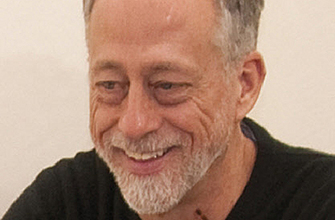I’ve been attending a weekly seminar on the Metaphysics of Time Travel, given by Alasdair Richmond. Yesterday, he was talking about the way knowledge arises in causal chains. Popper (1972 and various others) argues that “Knowledge comes into existence only by evolutionary, rational processes” (quoted from Paul Nahin, ‘Time Machines: Time Travel in Physics, Metaphysics and Science Fiction, New York, American Institute of Physics, 1999: 312). Good news for us scholars of Cultural Evolution. However, Richmond also talked about the work of David Lewis on the nature of causality. There are three ways that causal chains can be set up:
The first is an infinite sequence of events each caused by the previous one. For example, I’m typing this blog because my PhD work is boring, I’m doing a PhD because I was priced in by funding, I applied for funding because everyone else did … all the way back past my parents meeting and humans evolving etc.
The second option is for a finite sequence of events – like the first option, but with an initial event that caused all the others, like the big-bang.
The third option is a circular sequence of events. In this, A is caused by B which is caused by A. For instance, I’m writing doing a PhD because I got funding and I got funding because I’m doing a PhD, because I got funding. There is no initial cause, the states just are. This third option seems really odd, not least because it involves time-travel. Where do the states come from? However, argues Lewis, they are no more odd than any of the other two options. Option one has a state with no cause and option two has a cause for every event but no original cause. So, how on earth can we get at the origin of knowledge if there is no logical possibility of determining the origin of any sequence of events?
One answer is just to stop caring after a certain point. Us linguists are unlikely to get to the point where we’re studying vowel shifts in the first few seconds of the big bang.
The other answer is noise. Richmond suggested that ‘Eureka’ moments triggered by random occurrences, for instance (Nicholas J. J. Smith, ‘Bananas Enough for Time Travel?’, British Journal for the Philosophy of Science, Vol. 48, 1997: 363-89). mishearing someone or a strange dream, could create information without prior cause.
Spookily, the idea I submitted for my PhD application came to me in a dream.
 Shared or collective intentionality is the ability and motivation to engage with others in collaborative, co-operative activities with joint goals and intentions. (Tomasello et al. 2005). The term also implies that the collaborators’ psychological processes are jointly directed at something and take place within a joint attentional frame (Hurford 2007: 320, Tomasello et al. 2005).
Shared or collective intentionality is the ability and motivation to engage with others in collaborative, co-operative activities with joint goals and intentions. (Tomasello et al. 2005). The term also implies that the collaborators’ psychological processes are jointly directed at something and take place within a joint attentional frame (Hurford 2007: 320, Tomasello et al. 2005).![]()
